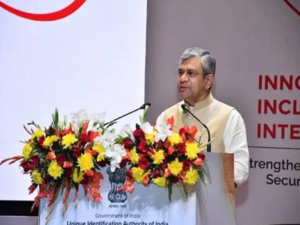Assistant Professor in Pune Duped with ₹20.6 Lakhs in Online Task Fraud

Assistant Professor in Pune Duped with ₹20.6 Lakhs in Online Task Fraud
Pune: A 42-year-old individual holding the position of assistant professor at a college located in a city has fallen victim to an online task fraud, resulting in a significant financial loss of ₹20.6 lakh. This fraudulent incident occurred during a period spanning from May 2021 to December 2022. The crooks employed a modus operandi wherein they enticed the victim by offering a part-time work opportunity within a well-regarded online retail platform.
Conduit into the Trap
The individuals orchestrating the illegal operation commenced their plan by contacting the assistant professor via text message, presenting an enticing opportunity for a well-paying part-time role within a reputable e-commerce company. Motivated by a desire to investigate the potential, the individual in question actively participated in communication with the perpetrators of the fraudulent activity via telephone. Subsequently, he was directed to establish an account and initiate an initial payment of ₹1,000 for the purpose of account replenishment. The victim acquiesced, and in order to enhance his confidence, the perpetrators proceeded to transfer ₹1,300 to his bank account, employing a strategy intended to establish credibility.
A Web of Deceit Unravel
Upon successfully ensnaring their intended victim, the perpetrators proceeded to intensify their deceitful tactics by assigning various online assignments to the assistant professor, all the while persisting in transferring nominal sums of money into his account. The aforementioned transactions were methodically computed with the intention of fostering the victim’s trust. Following this, the perpetrators engaged in manipulation tactics to get the victim to invest different sums of money into what they referred to as “tasks,” with the false promise of significant rewards.
An Expensive Illusion
Regrettably, succumbing to their scheme, the individual filing the complaint proceeded to transfer a substantial amount of ₹20.6 lakh through various transactions, as directed by the perpetrators of the crime. Without the victim’s knowledge, this scheme was intricately designed to deplete his financial resources.
The Dreadful Realisation
After conducting a thorough examination of his employment records, the assistant professor discovered documentation pertaining to a commission totaling ₹6 million. Nevertheless, he encountered difficulties in transferring this cash to his designated bank account. Concerned, he reached out to the individuals involved in the incident, only to be informed that the account had incurred harm as a result of unfinished assignments within the designated timeframe.
The Final Treachery
In a conclusive display of deceit, the perpetrators successfully convinced the target to make further monetary deposits under the pretense of account restoration. At this juncture, the individual who suffered harm came to the realization that they had become entangled in a complex network of dishonesty, as the perpetrators continued to persistently request financial compensation.
The associate professor, who resides in Kondhwa, is currently facing a substantial cash loss and the sad realization of falling victim to online task fraud. This occurrence serves as a poignant reminder of the significance of remaining vigilant and exercising caution when traversing the expansive domain of the internet, underscoring the necessity for increased understanding concerning online fraud and fraudulent activities.
Revealing the Mode of Operation
This analysis aims to examine the complex fraudulent scheme that targeted the assistant professor, revealing the cunning methods employed by the perpetrators.
- The Initial Attraction and Tempting Proposition.
The perpetrators initiated their action by contacting the target through an alluring text message, presenting the prospect of employment in a part-time capacity with a well-known e-commerce site. The primary objective of this initial interaction was to ensnare the target within their deceptive scheme.
- Establishing Trust and Engaging Stakeholders.
Upon the victim’s display of interest, the perpetrators proceeded to advance their scheme by initiating communication with him through telephone. The individual was directed to establish an account, with a request for a nominal fee of ₹1,000 for the purpose of account replenishment. In order to establish trust, the perpetrators went to the extent of depositing an amount of ₹1,300 into the bank account of the victim, so creating an illusion of reliability.
- Fostering Self-assurance with Minor Transactions.
In furtherance of their deception, the perpetrators proceeded to transfer small sums of money to the target’s account, in addition to assigning online assignments. The purpose of these transactions was to establish trust and confer legitimacy to the entire fraudulent scheme.
- Suggesting Investment Opportunities with Misleading Returns.
Once the thieves had gained the trust of the victim, they proceeded to seduce him by suggesting investments in these endeavors, with enticing promises of substantial financial gains. The individual who fell victim to the allure of potential financial rewards was persuaded to send a big amount of money, namely amounting to ₹20.6 lakh, so becoming more ensnared in the scheme.
- Assertion of an Account in a State of Disrepair.
In order to enhance the fraudulent scheme, the perpetrators concocted a narrative in which the victim’s account was purportedly compromised as a result of purported delays in the execution of tasks. This strategy was employed to request further funding for the purpose of account ‘repairs,’ hence leading to additional monetary transfers.
- The Grim Realization and Final Betrayal.
Ultimately, the trust of the victim was severely compromised as the perpetrators persisted in their financial extortion. The assistant professor ultimately discerned the act of deceit, resulting in a significant monetary setback. This particular occurrence functions as an instructive narrative, underscoring the importance of exercising caution and conducting thorough verification prior to participating in alluring online prospects.
About The Author:
Yogesh Naager is a content marketer who specializes in the cybersecurity and B2B space. Besides writing for the News4Hackers blog, he’s also written for brands including CollegeDunia, Utsav Fashion, and NASSCOM. Naager entered the field of content in an unusual way. He began his career as an insurance sales executive, where he developed an interest in simplifying difficult concepts. He also combines this interest with a love of narrative, which makes him a good writer in the cybersecurity field. In the bottom line, he frequently writes for Craw Security.
Read More News Here






